All Stories
-

Next-gen science as told by next-gen journalists
With the release of Science News' "SN 10: Scientists to Watch" list, editor in chief Nancy Shute discusses the bright future of science and science journalism.
By Nancy Shute -
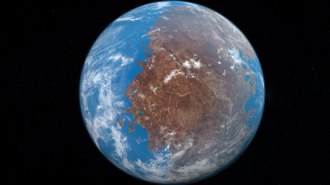 Earth
Earth50 years ago, scientists dug into Pangaea’s past lives
In 1972, scientists wondered whether Pangaea was Earth’s only supercontinent. Fifty years later, we know it wasn’t the first and it won’t be the last.
-
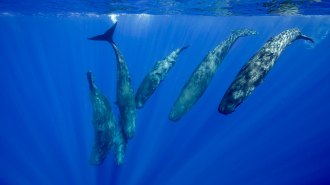 Animals
Animals‘Wonderful nets’ of blood vessels protect dolphin and whale brains during dives
Complex networks of blood vessels called retia mirabilia that are associated with cetaceans’ brains and spines have long been a mystery.
-
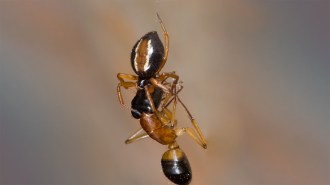 Animals
AnimalsThis spider literally flips for its food
The Australian ant-slayer spider’s acrobatics let it feast on insects twice its size, a new study shows,
By Freda Kreier -
 Climate
ClimateGas flares are leaking five times as much methane than previously thought
The flares burn off methane at 91 percent efficiency. Achieving 98 percent efficiency would be like taking nearly 3 million cars off the road.
-
 Humans
HumansHow to get a crying baby to sleep, according to science
Science has come up with a recipe for lulling a crying baby to sleep: Carry them for five minutes, sit for at least five more and then lay them down.
-
 Chemistry
ChemistryJosep Cornella breaks boundaries to make new and better catalysts
Josep Cornella reinvents chemical reactions essential for agriculture and the pharmaceutical industry.
By Anna Gibbs -
 Computing
ComputingHuijia Lin proved that a master tool of cryptography is possible
Cryptographer Huijia Lin showed that the long-sought “indistinguishability obfuscation” is secure from data attacks.
-
 Life
LifeMarcos Simões-Costa asks how cells in the embryo get their identities
Marcos Simões-Costa combines classic studies of developing embryos with the latest genomic techniques.
By Aina Abell -
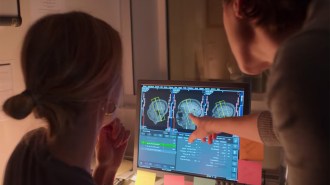 Neuroscience
NeuroscienceEmily Jacobs wants to know how sex hormones sculpt the brain
Emily Jacobs studies how the brain changes throughout women’s reproductive years, plus what it all means for health.
-
 Health & Medicine
Health & MedicineChristopher Barnes is on a quest for a universal coronavirus vaccine
Christopher Barnes wants to stop the viruses that cause COVID-19, the common cold and more.
-
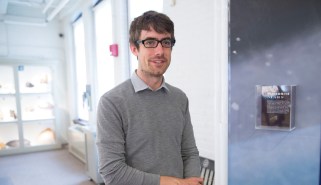 Planetary Science
Planetary ScienceRobin Wordsworth re-creates the atmosphere of ancient Mars
Robin Wordsworth studies the climates of Mars and other alien worlds to find out whether they could support life.
By Nikk Ogasa